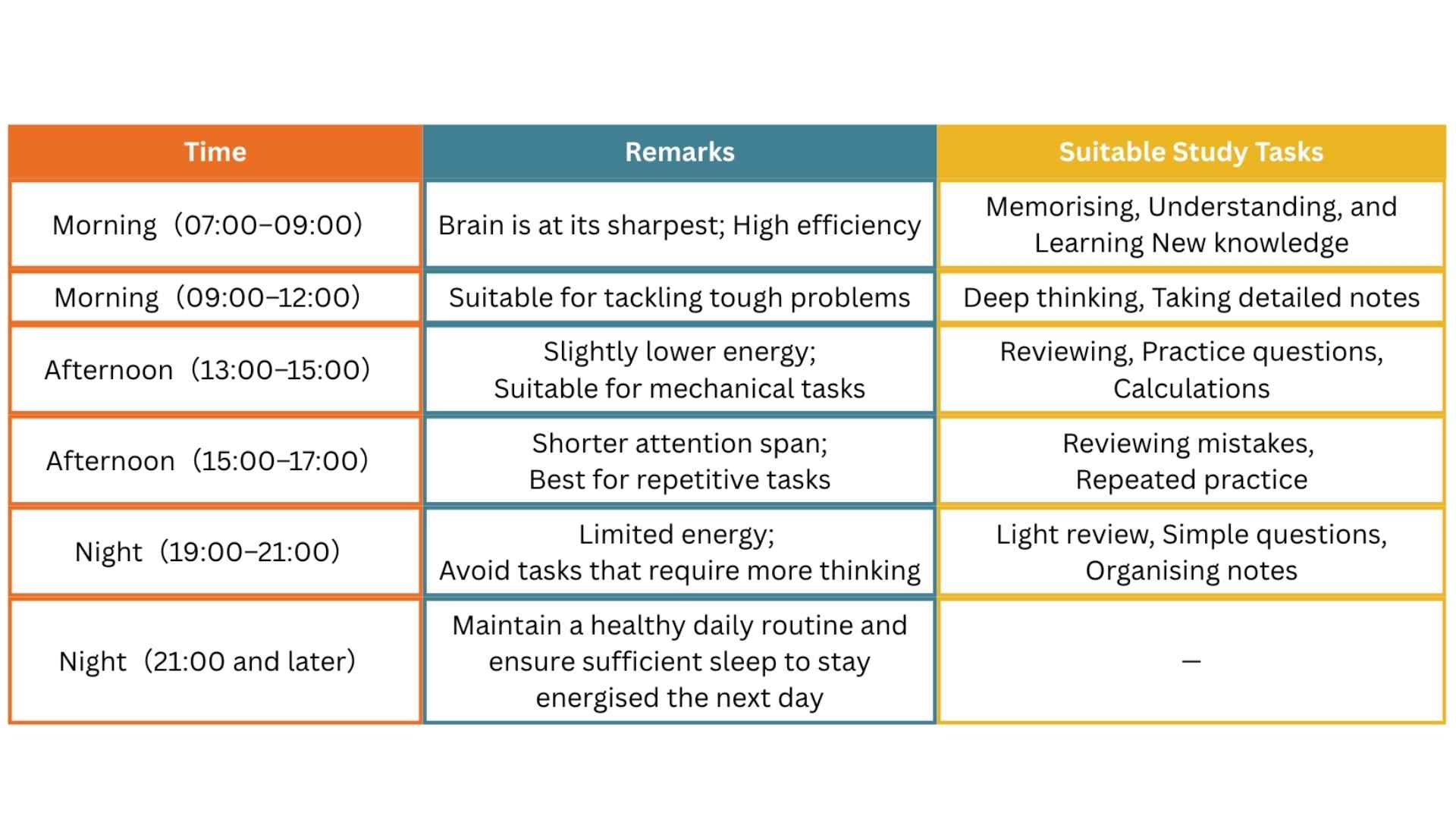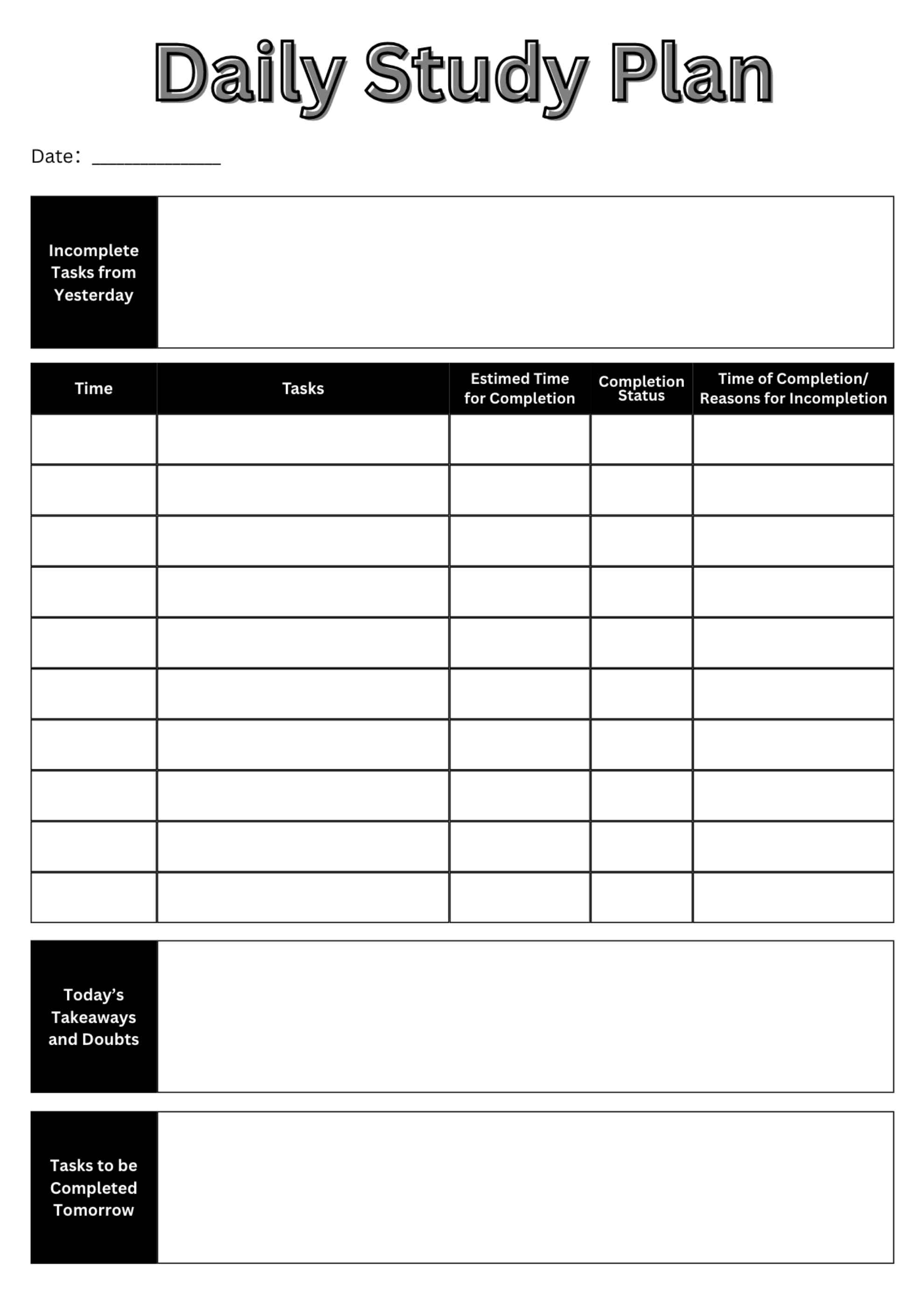本帖最后由 张涛老师 于 2025-8-13 17:39 编辑
Working Hard but Getting Nowhere? Boosting Efficiency Is the Real Game-Changer!
Many students feel that there is never enough time in the day, especially when homework piles up and exams draw near. In a bid to catch up, they often try to "make more time" by cutting into sleep, meals, and breaks, squeezing every possible minute into studying. This is particularly true for secondary school students: their courses are more challenging, they have more subjects, and their schedules are packed with CCAs and other commitments—not to mention the looming pressure of O-Levels—leaving them barely any time to catch their breath.
But there is a crucial problem with this way of thinking: more time spent does not guarantee better results. Simply stretching study time rarely leads to meaningful improvement. This is partly explained by the Matthew Effect, which describes the phenomenon where those with initial advantages tend to achieve more subsequent success while those with disadvantages fall behind increasingly. Students who are able to manage their time and work efficiency well tend to do better in school work and exams, even having free time for self-study and adequate rest. Conversely, struggling students hardly have enough time to complete their assignments, let alone for independent studying. Without addressing the issue of work efficiency, the gap only widens.
The real key is not to study longer, but to study smarter; everyone has same 24 hours in a day, but the difference lies in how effectively that time is used. Instead of chasing more hours, students should focus on maximising the time they already have and directing their energy towards the tasks that matter most.
The following are 3 actionable steps to help your child organise their study time systematically to boost work efficiency:
1. Focus on Tasks Within Capabilities
A common mistake students make is trying to tackle every challenge head-on, even if it is far beyond their current abilities. This not only wastes valuable time, but also hurts their confidence in tackling future obstacles. Students should first categorise their work into 3 clear categories: • Tasks that can be done alone: These are tasks within the student's current ability and can be completed independently. Prioritising these helps build a solid foundation, boost confidence, and maintain learning momentum. • Tasks that may require guidance: These are tasks slightly beyond current skills but can be managed with guidance. Set a reasonable time limit (e.g., 30 minutes or 1 hour) to try solving them. If the problem still cannot be resolved, reach out to a teacher, classmate, or tutor for help instead of getting stuck for hours. • Tasks that can't be completed: These are well beyond the student's current level and unlikely to be mastered in the short term. It will be more productive to set them aside for now and focus on what is achievable instead. This does not mean the student is "giving up", buut strategically allocating limited time to tasks that bring the most progress. By learning to categorise work in this way, students not only improve study efficiency but also develop valuable self-management skills.
2. Matching Tasks to Energy Levels
Students do not maintain the same level of focus throughout the day; neither should their study plan expect them to do so. Aligning tasks with natural energy peaks and dips will result in more effective study sessions.

• High-energy periods: Often in the morning or just after an afternoon break. This time period is best for deep thinking and learning new concepts, such as memorising key concepts, understanding new topics, taking notes, or previewing lessons.
• Lower-energy periods: More common in the late afternoon or evening. Ideal for more mechanical tasks like doing practice problems, reviewing mistakes, or consolidating knowledge already learned.
• Breaks and relaxation: Short breaks, stretching, or simple eye exercises help recharge mental energy, making the next study block more productive.
3. Stick to a Daily Study Plan
A study plan is more than a to-do list — it’s a structure that helps students stay on track and avoid wasted time. The real benefits come from consistent execution and regular review.

A good routine might look like this:
• Before studying: Review incomplete tasks from the previous day and fill in the tasks for today.
• After studying: Check completed tasks, identify delays or inefficiency, and adjust for the next day.
This habit of planning, acting, and reflecting turns time management into a skill — one that pays off in sustained academic progress.
Time is a fixed resource. Instead of endlessly trying to squeeze out more hours, students should aim to get the most out of the hours they have. By categorising tasks wisely, matching work to energy levels, and following a clear daily plan, they can dramatically increase learning efficiency. Over time, these habits will not only improve results but also give them the confidence that every minute of effort is truly moving them forward.
|